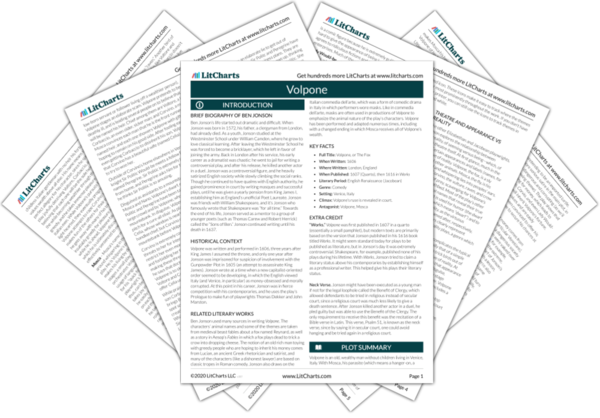The “golden age” is a reference to the Roman poet Ovid and his work
The Metamorphosis. Again, Volpone places an excessive emphasis on the value of gold. He also introduces the idea, explored throughout the play, that gold instils people (here Goddesses) with their best qualities.
